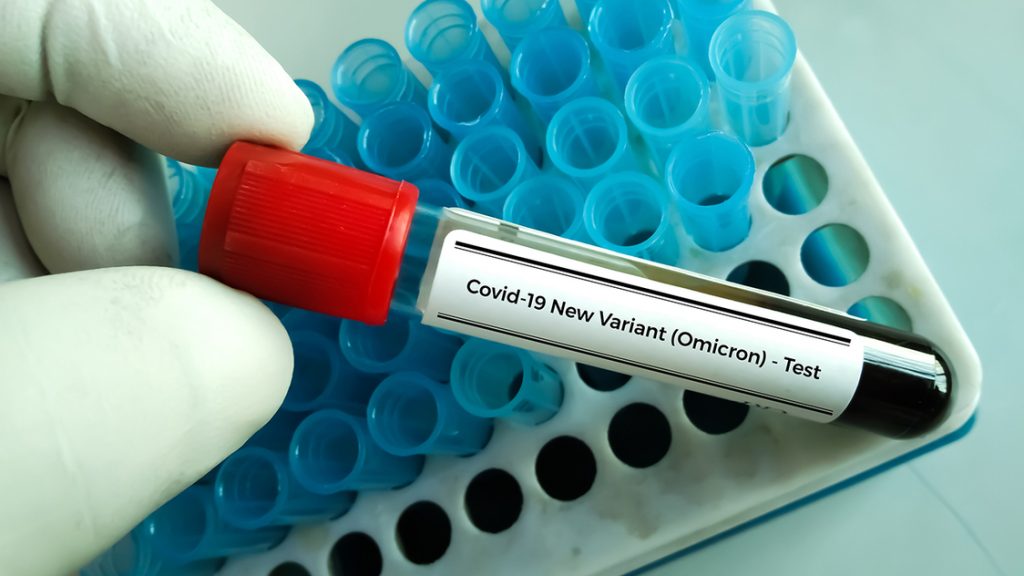COVID-19 variant Omicron: South Africa’s President Cyril Ramaphosa has said he is deeply disappointed by the decision of several countries to prohibit travel from South Africa following the detection of COVID-19 variant Omicron.

In a national address to the nation, President Ramaphosa urged all the countries that have imposed travel bans on South Africa and other Southern African countries to urgently reverse their decisions, SAnews.gov.za reported.
All the travel bans imposed on South Africa and other Southern African countries should be lifted before they cause further damage to the countries’ economies and to the livelihoods of people, the president said.
Ramaphosa: There is no scientific justification for travel bans
“There is no scientific justification for keeping these restrictions in place. We know that this virus, like all viruses, does mutate and form new variants,” President Ramaphosa said.
A new variant of the Coronavirus that causes the COVID-19 disease was identified by South African scientists last week. The variant which was first detected in Botswana and then in South Africa, has so far been identified other countries including Hong Kong, Australia, Belgium, Italy, the United Kingdom, Germany, Austria, Denmark and Israel.

The World Health Organisation named it Omicron and declared it a “variant of concern”.
The United Kingdom, United States, European Union members, Canada, Turkey, Sri Lanka, Oman, the United Arab Emirates, Australia, Japan, Thailand, Seychelles, Brazil and Guatemala, are some of the countries have imposed travel ban on South Africa and other Southern African countries.
“We are deeply disappointed by the decision of several countries to prohibit travel from a number of Southern African countries following the identification of the Omicron variant,” President Ramaphosa said. “This is a clear and completely unjustified departure from the commitment that many of these countries made at the meeting of G20 countries in Rome last month.”
The travel restrictions, he said, were unjustified and unfairly discriminated against South Africa and other Southern African countries.
“The prohibition of travel is not informed by science, nor will it be effective in preventing the spread of this variant. The only thing the prohibition on travel will do is to further damage the economies of the affected countries and undermine their ability to respond to, and recover from, the pandemic,” President Ramaphosa said.
He challenged the rich countries to facilitate the poor countries’ access to COVID-19 vaccine. “Instead of prohibiting travel, the rich countries of the world need to support the efforts of developing economies to access and to manufacture enough vaccine doses for their people without delay,” said President Ramaphosa.
Excellent science should be applauded, not punished
The South African foreign ministry on Saturday strongly criticised the travel bans. Department of International Relations and Cooperation spokesperson Clayson Monyela said: “Excellent science should be applauded and not punished. The global community needs collaboration and partnerships in the management of the COVID-19 pandemic.”
A similar view has been expressed by Zakes Mda, a South African writer and playwright. “People are angry, and the international community is punishing us for being able to identify a new variant and having communicated it to the world in a timely manner. This is unfair,” he told Corriere della Sera. He wondered whether the world would have reacted in the same manner had the variant been detected and communicated by a European country. “These measures end up being an economic boycott of a country already devastated by previous waves.”
The travel ban, he said, would seriously affect South Africa which is a country dependent on tourism.
Corriere della Sera reported that the escalation of infections in South Africa started from some parties among students of the University of Pretoria. Within a week the positivity rate rose to 9.2%, while new cases per day jumped from a few dozens to a few thousands. Well below the peak of the last wave, which had exceeded 25,000 without arousing any international alarm.
Tom Ellman, director of the Medical Unit of Doctors Without Borders in South Africa, told Corriere della Sera: “It’s incredible, two days were enough for Europe to close the doors to South Africa, but over two years of pandemic were not enough to provide support to the countries most in difficulty in managing the virus in order to avoid the proliferation of variants.” He added that closing the borders was not an effective solution since the virus will find other ways of spreading.
